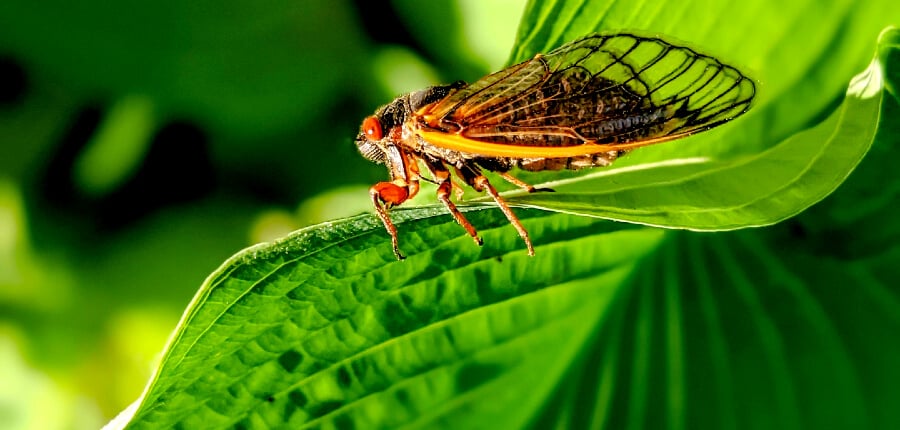With all the recent talk about killing and eating cicadas—including people suggesting freezing them to death or boiling them alive like mistreated lobsters—here’s another idea: Don’t. And not just because they may carry a fungus that you wouldn’t want to ingest.
Cicadas are fascinating animals who have inspired everyone from Bob Dylan to the U.S. Navy, which is studying the insects in hopes of mimicking their method of sound production to transmit messages underwater. They communicate using a wide variety of vocalizations, but the songs that we hear most frequently are those that the males sing to woo potential mates. Think of the buzzing you hear in your backyard as a cicada-style Ed Sheeran concert. And unlike the frat guys down the block, these polite insects respect quiet nighttime hours and only play their music loudly during the day.
Cicadas likely have much more to teach us. They are able to keep track of time during years spent underground just by tasting the minute changes in root fluid that occur when trees blossom in the spring. And they know exactly when to emerge by sensing that the ground temperature is a precise 64°F. When you see a cicada—or any animal—flitting around outside, they are working to accomplish what they set out to achieve that day, just as we do.
Theologian and Nobel Peace Prize winner Albert Schweitzer said, “Each of us must live daily from judgment to judgment, deciding each case as it arises as wisely and mercifully as we can.” When humans have so many other choices for a snack, is there really justification for killing intelligent animals for a novelty, like a gross-out challenge in a lowbrow reality show?
If the reasoning is “to eat sustainably,” we can do much better. The most eco-friendly meals aren’t “nose-to-tail” but “root-to-top.” Cicadas—like many animals—are already threatened by human overpopulation, urban sprawl, deforestation, and the climate catastrophe, the latter two being caused, in large part, by animal agriculture. The United Nations reports that raising animals for food is “one of the top two or three most significant contributors to the most serious environmental problems, at every scale from local to global.”
Instead of asking, “What other animals could we exploit?” the question should be, “Why don’t we just get our nutrients from fruits, vegetables, legumes, and grains instead?” Eating all the insects won’t magically solve the problem of how to feed 7 billion humans. Eating plants ourselves instead of funneling massive amounts of them through other animals will.
Animals—including cicadas—serve important purposes in nature. Far from threatening gardens, periodical cicadas are actually quite handy to have in the yard. They aren’t interested in flowers or vegetables, preferring to get their healthy greens from trees and shrubs. They generally don’t live long enough to do damage, but if homeowners are concerned about small trees, they can wrap the trunks in spun polyolefin and the cicadas will move on. If you do let them stay, however, they’ll aerate your lawn even better than earthworms do when they burrow. And as the females dig tiny trenches in branches to lay their eggs in, they naturally prune the trees, resulting in more flowers for pollinators and fruit for us. When the cicadas are gone next month, the discarded exoskeletons they leave behind will make excellent nitrogen- and potassium-rich, chemical-free fertilizer.
We should reject the idea that cicadas have no inherent value, as well as the speciesist notion that all animals belong to humans to do with as we please. Holocaust survivor and author Isaac Bashevis Singer wrote, “When a human kills an animal for food, he is neglecting his own hunger for justice. Man prays for mercy, but is unwilling to extend it to others.”
Achieving a kinder and more equal society starts with teaching our children to learn about and appreciate others and that those who look and think differently from us are still deserving of respect. If cicadas can wait underground for 17 years just to enjoy one month of life, can’t we be evolved enough to let them have it?





